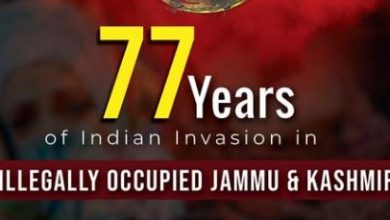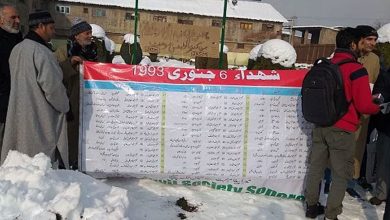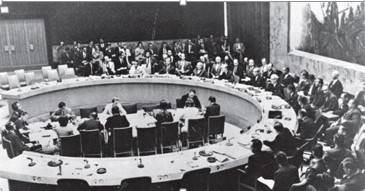January 5: A Testament to Kashmir’s Unyielding Struggle for Self-Determination
By Laiba Binte Zafar

 For the people of Jammu & Kashmir, January 5 is a serious day of reflection and determination. It commemorates the anniversary of a significant United Nations resolution passed by the United Nations Commission on India and Pakistan (UNCIP) in 1949. It is known as Right to Self-Determination Day. This resolution guaranteed the Kashmiri people the freedom to choose their political destiny in a free and fair referendum overseen by the United Nations. However, that promise has not been recognized decades later, leaving millions of Kashmiris in a state of uncertainty as they are involved in a protracted conflict characterized by political unrest and violations of human rights.
For the people of Jammu & Kashmir, January 5 is a serious day of reflection and determination. It commemorates the anniversary of a significant United Nations resolution passed by the United Nations Commission on India and Pakistan (UNCIP) in 1949. It is known as Right to Self-Determination Day. This resolution guaranteed the Kashmiri people the freedom to choose their political destiny in a free and fair referendum overseen by the United Nations. However, that promise has not been recognized decades later, leaving millions of Kashmiris in a state of uncertainty as they are involved in a protracted conflict characterized by political unrest and violations of human rights.
The division of British India in 1947 is where the origins lie. The princely states of Jammu and Kashmir became disputed areas after India and Pakistan were established. Hari Singh, a Hindu Maharaja, governed the territory despite its predominately Muslim population. The Maharaja while telling Pakistan and India to stand still, as he takes his decision, gave accession to India, which took Pakistan by surprise, as this act violated the standstill agreement. Pakistan fiercely opposed this accession, which led to the first Indo-Pakistani war in 1947–1948. In an attempt to arbitrate the situation, the UN put out a resolution requesting a plebiscite so that the people of Jammu and Kashmir may decide their destiny. The United Nations reinforced this declaration on January 5, 1949.
January 5 is a depressing reminder of unmet promises and continuous hardships for Kashmiris around the world. It is a day when we reiterate demands for self-determination, justice, and rights respect. This is an opportunity for civil society activists and political figures from every aspect of life to draw attention to the suffering of Kashmiris living under Indian rule. Pakistani authorities have continuously shown support for the Kashmiri cause. They stress that despite India’s persistent opposition and claims of widespread violations of human rights in the area, the right to self-determination is guaranteed by international law and must be respected.
On August 5, 2019, India withdrew Article 370 of its constitution, depriving the territory of its unique status, and drastically altering the situation in Jammu and Kashmir. Widespread anger among the local population has come from this action, which is seen as an effort to further merge Jammu and Kashmir with India. Many Kashmiris believe that the Indian government is purposefully trying to change the demographics of the area and weaken its unique character. Reports of human rights violations, including arbitrary detentions, the repression of free expression, and violent crackdowns on protesters, have increased since this revocation. Concern has been raised by international human rights organizations, which have denounced these acts and called for responsibility under international standards.
The international community has mainly stayed silent in reaction to these violations. Despite several UN resolutions highlighting the necessity of a referendum and human rights, concrete action is still lacking. Activists believe that additional abuses by Indian authorities are encouraged by the absence of strong international action. The Kashmiri diaspora, meanwhile, is still speaking out and planning actions and rallies all over the world. By raising awareness of the ongoing suffering of Kashmiris, these initiatives hope to persuade countries and international organizations to keep their promises.
The cooperation of India, Pakistan, and the Kashmiri people is necessary for a peaceful settlement of the conflict. Many thinks that the implementation of UN resolutions, the creation of impartial oversight bodies for human rights abuses, and inclusive discussions involving Kashmiri leadership are the best ways to move forward. Achieving enduring peace will remain an unattainable aim in the absence of these actions.
Every year as January 5 draws near, it acts as a call to action for justice in Jammu and Kashmir and serves as a reminder to the world of a promise that has not yet been kept. For the Kashmiri people, the right to self-determination is a strongly held belief that symbolizes their identity, dignity and hope for an oppression-free future. It is not only a political desire. Kashmiris’ tenacity and unity have not wavered in the face of decades of adversity, as they continue to seek the freedom to choose their path in life and the right to live in peace.
–The writer is a student at the National Defense University Islamabad, pursuing a degree in Peace and Conflict Studies.








